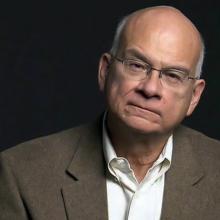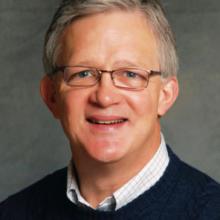Tim Keller
About 50 evangelical Christian leaders gathered early this week to discuss the future of evangelicalism amid concerns their movement has become too closely associated with President Trump’s polarizing politics.
Perhaps one reason the events played out differently at Princeton is because folks there insisted on seeing one another as members of a community, participants in the one Body of Christ, and in that spirit mustered what Dietrich Bonhoeffer once called the “ministry of bearing” essential to maintaining community. In 1938 Bonhoeffer wrote a book about his own seminary called Life Together, in which he emphasized that the enjoyment of fellowship with other Christians is a privilege, a gift of God’s grace. But he also understood that the church is a human community, and therefore not immune from conflict. Christians, he said, ideally respond to their inevitable conflict with a reassertion of mutual care and intentional practices of community building in the name of Christ.
Yesterday, we spoke with Princeton Seminary president Dr. M. Craig Barnes about the controversial decision to rescind the award — which he revealed to us was actually Keller’s suggestion — and his hopes for the school moving forward.
“It is not my practice to censor the invitations to campus from any of our theological centers or student organizations,” Barnes said in a letter addressed to the seminary community. “Yet many regard awarding the Kuyper Prize as an affirmation of Reverend Keller’s belief that woman and LGBTQ+ persons should not be ordained… In order to communicate that the invitation to speak at the upcoming conference does not imply an endorsement of the Presbyterian Church in America’s views about ordination, we have agreed not to award the Kuyper Prize this year.”
As the seminary said in announcing the award, Keller “is widely known as an innovative theologian and church leader, well-published author, and catalyst for urban mission in major cities around the world.”
But Keller is also a leader in the Presbyterian Church in America, or PCA, which is the more conservative wing of U.S. Presbyterianism and does not permit the ordination of women or LGBTQ people.
Redeemer Presbyterian Church, one of the most influential evangelical churches in the country led by author and speaker Tim Keller, has partnered with a Mississippi-based school to form a seminary campus in New York City in 2015.
The partnership between Redeemer and Reformed Theological Seminary fits in with the desire of evangelicals to plant their flag in large cities such as New York. It also reflects the influence of Reformed theology on evangelical thinking, as well as the impact of megachurches on theological education.
And while many seminaries are still suffering declining revenues since the economic crisis of 2008, the model of building campuses in major cities has proved successful for the Mississippi flagship seminary.
Students in the New York City campus will be trained to start churches by pursuing a two-year master’s of arts degree in biblical studies at $430-450 per credit hour before receiving another year of pastoral church planting education from Redeemer. The campus will likely launch in Redeemer’s offices near Herald Square in Manhattan.
Last week as I was scrolling through my Facebook news feed, I came across a post from Dr. Timothy Keller, one of the founding members of The Gospel Coalition, who has been known for his very intellectual and reasonable perspective on a variety of issues that his other conservative colleagues have not been so balanced on. However, one of his recent comments surprised me, seeming to further a false narrative about millennial evangelicals that we are a generation of spineless, selfish, and scared hipsters:

I immediately was taken aback when I came across this post. As a millennial who has been actively involved in the conversation surrounding what faith, life, and church will look like for my generation, it is abundantly clear that the image that Keller paints has little to no grounding in reality. In fact, I would argue that one of the biggest desires of millennials is that we would be involved in deeply intimate communities that allow us to express ourselves openly, ask the questions to arise in our minds without fear of judgment, and give us a tribe of people that will walk with us through the ups and downs of life. In fact, this desire for intimate community is a direct response to the lack of community we have grown up with, especially in the evangelical world with our sterile megachurches that make true community nearly impossible.
How do you get kids to read one of the world’s oldest books? Ask Sally Lloyd-Jones, whose The Jesus Storybook Bible recently passed the critical mark of one million copies sold.
The British ex-pat and now proud New Yorker has never married or had children of her own, yet aims to retell the Bible to something that comes alive for young people.
One of her editors told her once that there are two types of children’s books authors: the ones who are around children, and the ones who are children inside.
“It kind of freed me, because I think I know I’m that second one,” she said. “And I can still write from that place, because my childhood is so vivid.”
A group of leading evangelicals is expressing concern over the recent dismissal of the American Bible Society‘s new president after just six months on the job.
At nearly 200 years old with headquarters in Manhattan, ABS is a nonprofit that aims to provide tools to people to read the Bible. In 2012, it reported nearly $500 million in assets, receiving nearly $40 million in donations.
Doug Birdsall became president and CEO of ABS in March after leading a global gathering of evangelicals for the Lausanne Movement’s Cape Town 2010 meeting. Weeks before his Nov. 8 inauguration ceremony at ABS, he was dismissed by the board, which cited significant differences in how to achieve the organization’s goals.
“Obviously it was a deep blow,” Birdsall said on Wednesday. “It’s a bit of a mystery.”








